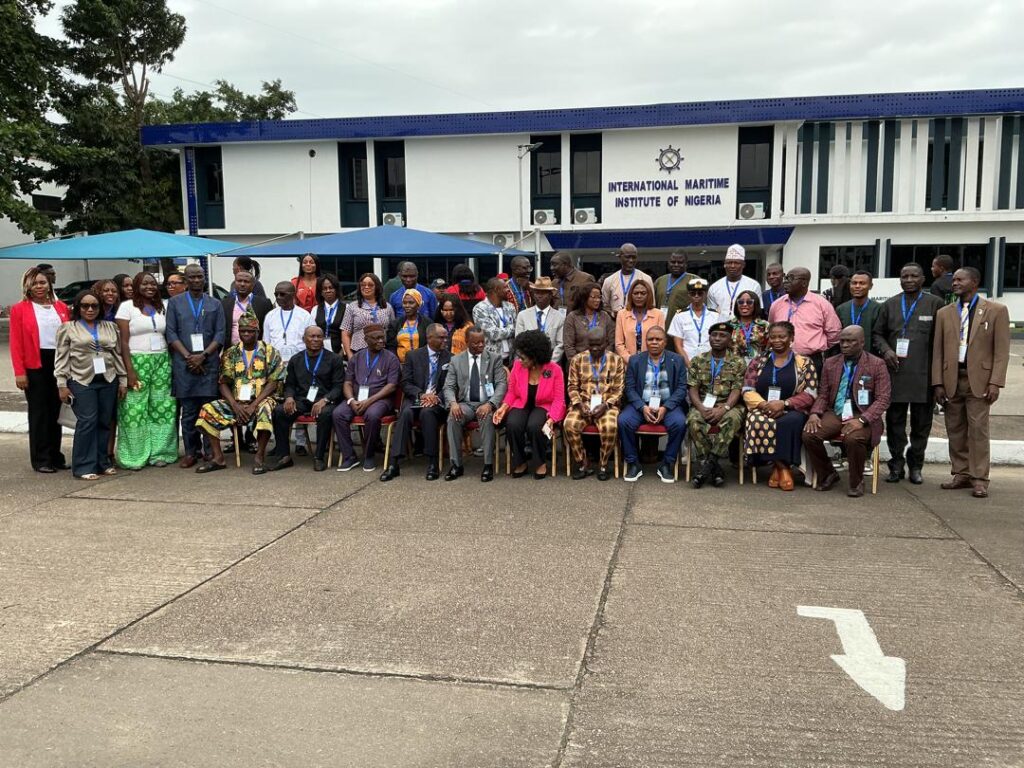Maritime experts have said that the Tarkwa Bay beach in Lagos has become the world’s largest marine dumpsite of waste.
Also, they noted that other Nigerian lagoons and beaches have been polluted by waste due to sea blindness by government to tap the potential in the ocean.
Despite the establishment of the Federal Ministry of Marine and Blue Economy, they said at one-day training that organised by the International Maritime Institute of Nigeria (IMION) in Lagos for media executive in Lagos that there was a widespread ignorance of the importance of maritime space and naval power by policymakers, the public and academia.
According to the Chairman of Board of Trustees of Maritime Security Providers Association of Nigeria (MASPAN), Rear Admiral Francis Akpan (rtd), underutilisation of the nation’s vast blue resources known as sea blindness was one of the major challenges affecting the country.
He noted that while countries like France have restored and repurposed their urban rivers most recently purifying the Seine for Olympic swimming, Nigeria’s waterways remain largely forgotten.
Akpan explained: “Tarkwa Bay is the recipient of the highest marine dumpsite for efuse on earth. You can quote me. Bonny comes close as second. If you stand by the Seine River in Paris, you will count more than 50 ferries operating actively. Meanwhile, our own lagoons, just as pristine, are virtually deserted.”
Akpan, was worried that while other maritime nations were advancing with maritime developments, Nigeria continues in rhetorics of unlocking potentials.
He said that this had led to poor investment, weak policy implementation and missed economic opportunities.
Akpan added: “Nigeria must urgently awaken to the reality that maritime supremacy is not merely about security, but a powerful tool of foreign policy and economic development. The nation’s emerging blue economy offers potential for job creation, regional integration, and sustainable development but only if backed by strategic action.
“A functioning navy, coast guard, and a clearly defined maritime strategy are no longer optional. They are prerequisites for any country seeking global relevance. Seminars, capacity-building trainings, and stakeholder engagements are slowly shifting perspectives, but we need to move faster.
“What is the status of the blue economy development in Nigeria? What are the imperatives that will enhance and facilitate the manifestation of blue economy in Nigeria? The aim for us is to look at imperatives of blue economy in Nigeria.”
With the creation of Marine and Blue Economy in 2023 , the Cchairman charged journalists to explore the relationship between blue economy and development of maritime seas.
Also, the Founder of Multimix Academy, Dr. Obiora Madu, observed that several years ago the Nigerian fishing sector could boast of a thriving sector with huge trawlers including the Osadjere fishing company –which was one of the largest decades ago.
However, he said that the recent classification of the Lome seaport as the hub for shipping activities in West and Central Africa as a wake-up call for the Federal Government and its maritime stakeholders.
In his welcome remarks, the Director General of IMION, Rear Admiral Thaddeus Udofia (Rtd) said that the training was to reaffirm the indispensable role of the media in shaping public perception, driving accountability and catalyzing positive change in the ocean space.
He said: “The stories you tell, the facts you report and the perspectives you elevate will be instrumental in informing public discourse, influencing policy and inspiring responsible stewardship of our marine resources. Your work is not just journalism it is advocacy, it is education and it is nation-building.” Udofia urged journalists to deepen their collaborations and remain passionate advocates for a sustainable Blue Economy for the nation, other Gulf of Guinea States and the world.
Also speaking at the training exercise, the President of Nigerian Maritime Law Association (NMLA), Mrs. Funke Agbor (SAN), encouraged the maritime media and the entire stakeholders not to give up on the sector on account of its sea blindness.
She described the recently concluded National Policy on Blue Economy as a beautiful document, but warned that implementation has always been Nigeria’s problem.
She said: “Nigeria is a beautiful coastal country that is taking for granted the opportunities for maritime tourism, transportation and other benefits derivable from the oceans.
“We can’t afford to be discouraged because we don’t have clean and safe waters. There are other countries that landlocked but we are privileged to have waters.”














